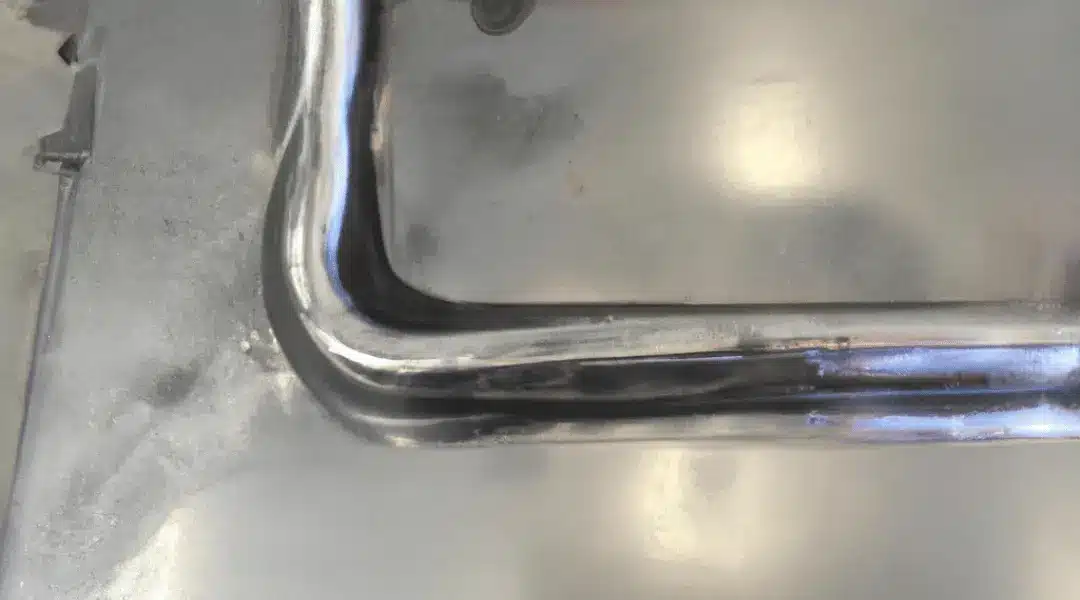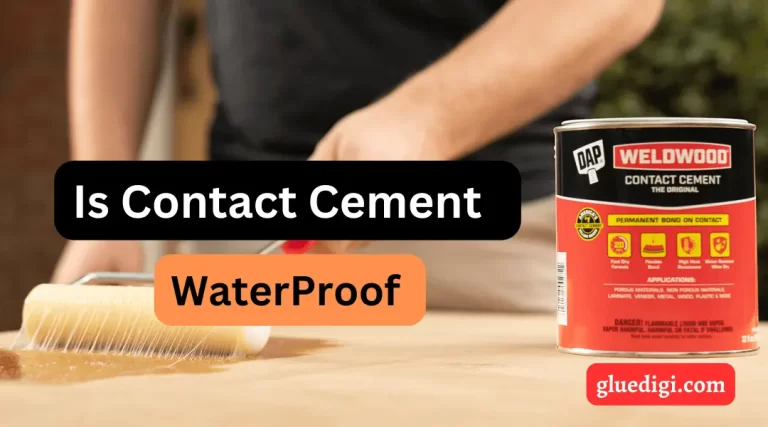When it comes to repairing metal, JB Weld is a popular option for many. But what about stainless steel? Does JB Weld work on this type of metal? In this blog post, we’ll explore the answer to this question and provide you with all the information you need to know about using JB Weld on stainless steel.
Let’s dive into this peculiar topic and uncover the taste, health risks, and even unique uses of glue beyond its intended purpose.
What is JB Weld?
The manufacturers design JB Weld as a two-part epoxy adhesive for repairing and bonding a variety of materials, including metal. The manufacturers make super glue by mixing a resin and a hardener that create a strong, durable bond capable of withstanding high temperatures and pressure.
JB Weld is famous for its ability to bond to almost any surface, including metal, wood, plastic, and more. It’s also resistant to water, oil, and chemicals, making it a popular choice for automotive and industrial applications.
But can it bond to stainless steel?
Properties of Stainless Steel
Before we can answer that question, it’s important to understand the properties of stainless steel. Stainless steel is a type of metal that’s famous for its strength, durability, and resistance to corrosion.
Stainless steel is composed of iron, chromium, and other metals like nickel and manganese. The amount of chromium in the steel is what gives it its corrosion-resistant properties. When exposed to oxygen, a thin layer of chromium oxide forms on the surface of the steel, preventing the steel from rusting or corroding.
Stainless steel is used in a variety of applications, including kitchen appliances, medical equipment, and automotive parts.
Can JB Weld Bond to Stainless Steel?

The short answer is yes, JB Weld can bond to stainless steel. However, there are some factors that the bond strength of the epoxy to stainless steel.
One of the biggest factors is surface preparation. Stainless steel surfaces must be clean and free of any oil, grease, or other contaminants that can affect the bond strength. The surface should also be lightly abraded with sandpaper or a wire brush to create a rough surface for the epoxy to adhere to.
Additionally, the type of JB Weld used can also affect the bond strength. Some types of JB Weld are specifically designed for use on metal surfaces and may provide a stronger bond than other types of epoxy.
Tips for Using JB Weld on Stainless Steel
If you’re planning on using JB Weld to bond stainless steel, there are a few tips that can help ensure a strong bond. These tips include:
- Clean the surface thoroughly with a degreaser and sandpaper or a wire brush.
- Mix the epoxy according to the instructions, taking care to use the correct ratio of resin to hardener.
- Apply the epoxy to the surface, taking care to spread it evenly and avoid air bubbles.
- Allow the epoxy to cure completely before subjecting it to any stress or pressure.
Applications for JB Weld on Stainless Steel
JB Weld can be used to repair or bond stainless steel in a variety of applications. Some examples include:
- Repairing a cracked or broken stainless steel sink or appliance.
- Bonding stainless steel parts in automotive or industrial applications.
- Repairing a stainless steel exhaust pipe or muffler.
- Repairing a stainless steel boat propeller.
Pros and Cons of Using JB Weld on Stainless Steel
Like any adhesive, JB Weld has its pros and cons when it comes to bonding stainless steel. Some of the pros include:
- Strong and durable bond- Resistant to water, oil, and chemicals
- Can be used in a variety of applications
However, there are also some cons to consider:
- Requires proper surface preparation for best results
- Can take several hours to cure completely- May not be suitable for high-stress applications
Alternatives to JB Weld for Bonding Stainless Steel
If you’re looking for an alternative to JB Weld for bonding stainless steel, there are a few options to consider. These include:
- Welding
- Brazing
- Soldering
Each of these methods has its pros and may be more suitable for certain applications than others.
Can JB Weld be used on rusty stainless steel?
No, JB Weld should not be used on rusty stainless steel. The surface must be clean and free of rust, oil, and other contaminants for the epoxy to bond properly.
How long does JB Weld take to cure on stainless steel?
The cure time for JB Weld on stainless steel can vary depending on the type of epoxy used and the temperature and humidity of the environment. In general, it can take several hours to cure completely.
Can JB Weld be used to repair a stainless steel exhaust pipe?
Yes, JB Weld can be used to repair a stainless steel exhaust pipe. However, it’s important to ensure that the surface is properly cleaned and abraded before applying the epoxy.
Conclusion
So, does JB Weld work on stainless steel? The answer is yes, it can. With proper surface preparation and the right type of epoxy, JB Weld can provide a strong, durable bond to stainless steel in a variety of applications.
However, it’s important to consider the pros and cons of using JB Weld for bonding stainless steel and to explore alternative methods if necessary.





